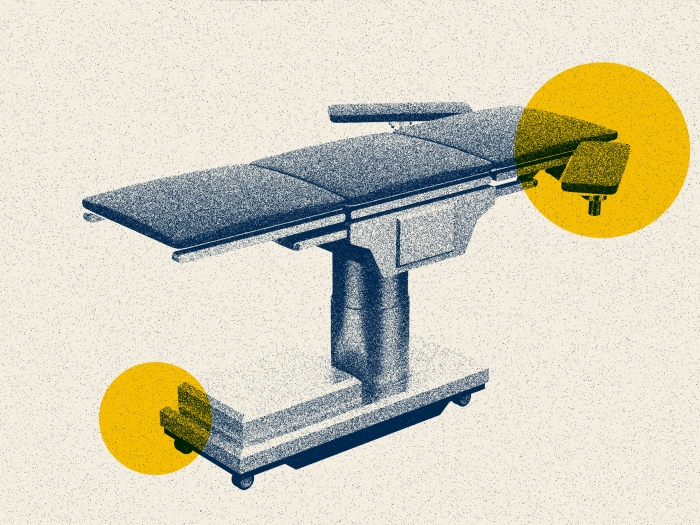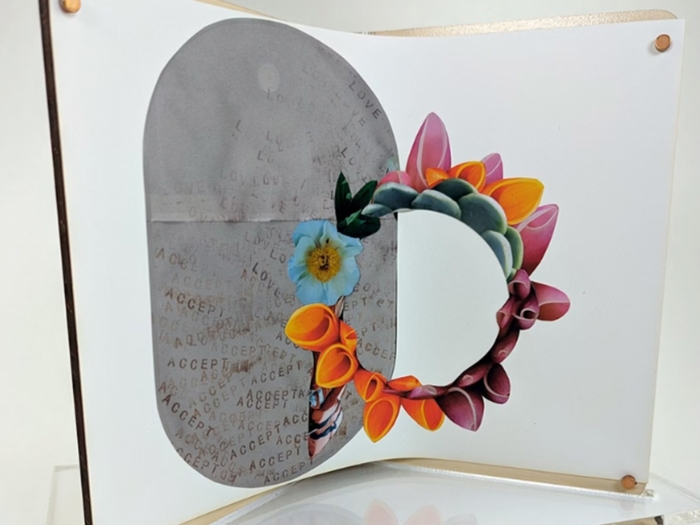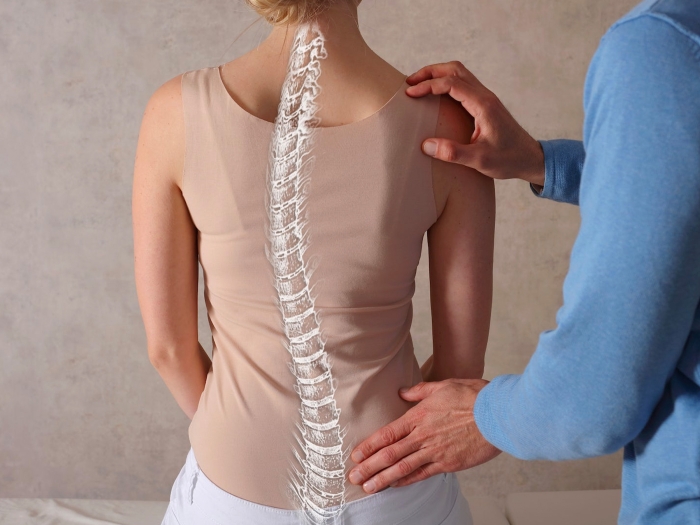The Kobayashis are siblings, best friends – and now – colleagues.
5:00 AM
Author |
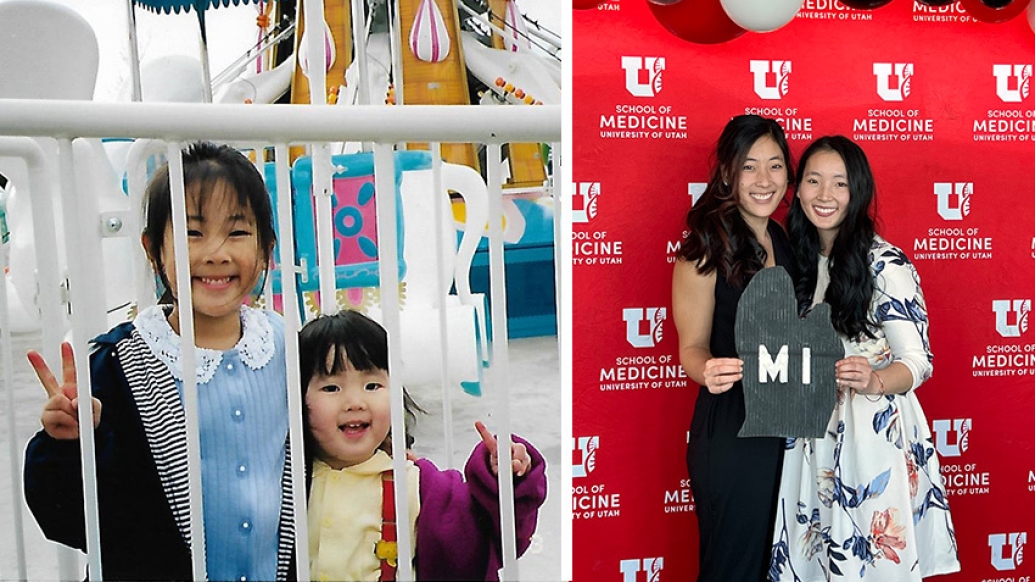
Family and friends crowded around as she prepared to open the envelope. Kana Kobayashi had known for months what she wanted to see on that piece of paper.
"I told myself it would be OK if I didn't get Michigan, but I was really, really hoping I would," said Kobayashi, M.D., who recently graduated from University of Utah Medical School. "My rotation there was just the best month of medical school, and no other program felt like home throughout my interview process."
By Kobayashi's side in that moment, stood one reason why University of Michigan Health, surely, felt like home.
"It was kind of like reliving a dream because I had just gone through this three years prior," said Fumina (Fu) Kobayashi, M.D., Kana's older sister by three years and a fourth-year orthopaedic surgery resident at U-M health. "We were in the exact same place where I had my match ceremony. I got jitters just being there again with her."
SEE ALSO: On a mission: orthopaedic surgeons look to expand program abroad
When 10 a.m. hit, so did the tears. Kana and Fu Kobayashi, sisters and best friends, embraced for the first time as future colleagues – and the first pair of sisters to match together in Department of Orthopaedic Surgery at U-M Health.
"In the past, our residency program has trained fathers and then sons, pairs of brothers, but it is truly thrilling for the first time to train sisters – and such high-level, sought-after residency candidates at that!" said Michelle Caird, M.D., chair of the department.
This match is exciting for the program for several reasons, says Mark Hake, M.D., an orthopaedic trauma surgeon and leader of the U-M Health Orthopaedic Surgery residency program.
"On a personal level, I'm excited to see Fu and Kana have one another to train with during their residencies – it's a tough road, so having your sibling around will be nice," Hake said. "From a program standpoint, we try to get the best and brightest. Kana was a star during her rotation, and we are so excited to have her taking care of our patients. On a much bigger level, this is another step that brings orthopaedic surgery closer to being the specialty we all want it to be in the future."
The road to Ann Arbor
Growing up, Kana Kobayashi always followed in her sister's path. Fu started tumbling, Kana started three years later. Fu competed in Division I gymnastics at University of Utah, her sister did the same at Oregon State.
In 2014, Fu applied to medical school. It was something she'd always wanted to do, and her gymnastics career led her to orthopaedics.
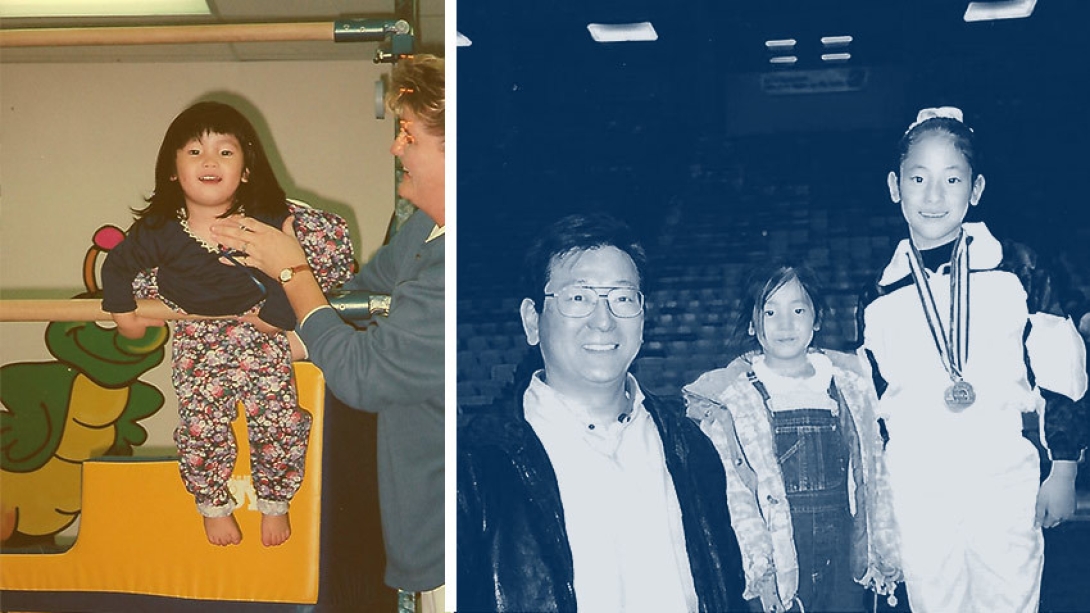
"I had a torn labrum in my shoulder that was repaired when I was a kid, and I had chronic low back pain that led to surgery in college to get my back fused," Fu Kobayashi said. "When it was time to think about a specialty, it seemed like the right fit."
Unlike her older sister, Kana Kobayashi was not initially interested in medicine. Their mother was diagnosed with colon cancer in 2011, and memories of difficult treatments lingered after her death in November of that year.
Kana Kobayashi's love for sciences, however, persisted. And after shadowing a family medicine physician during her undergraduate years, she decided to follow her sister– all the way to orthopaedics.
"With all my personal experiences with surgery – I had like six surgeries on my ankle growing up – that really pushed me to orthopaedics," she said.
Women in medicine
Choosing orthopaedics wasn't a snap decision, however. Kana Kobayashi knew the statistics – in 2019-2020, women made up fewer than 16% of orthopaedic residents – as well as the biases associated with the subspecialty.
"There was always so much doubt in my head when I was going through med school with this very male-dominated field," she said. "I didn't know if I was smart enough, tall enough or strong enough. But when Fu decided to do orthopaedics and to see her thriving, seeing somebody who looks like me succeed in the field I wanted to explore, it just catapulted my confidence and told me to go for it."
SEE ALSO: For orthopaedics, women in leadership look to transform the field
Not only does Kana Kobayashi see someone who looks like herself in her sister, but she can do the same at the department's highest level of leadership. In May 2021, Caird was named chair of orthopaedic surgery. She is one of a handful of female orthopaedic surgery chairs in the United States, and likely the first Japanese-American woman to hold such a title.
"I interviewed with Dr. Caird during my residency interview at U-M," Fu Kobayashi said. "Every program I looked at talked about all the women they had in leadership, but Michigan was one of those programs where they practiced what they preached. Having her this high up and knowing I would have that support in the program, I knew after 10 minutes that Michigan was the place to be."
"Our department at Michigan Medicine is determined to deliver culturally competent care to our orthopaedic patients and broad, inclusive education to our students and residents," Caird said. "This is a time of great change for our specialty, and we are so thrilled to have this opportunity to create a great impact."
The journey ahead
With two years left in her residency, Fu Kobayashi will be there for some of her younger sister's defining moments at the beginning of her career. Something very few, even medical families, get to do.
"I'm excited to kick her butt into shape," Fu Kobayashi joked.
"Kana pretty much experienced the last three years of residency through me talking about it all the time with her, so it will be fun to actually experience it together."
Beyond excitement, her sister's presence gives Kana Kobayashi a sense of comfort going into her orthopaedic surgery career. Her sister has her back.
"I'm so excited to learn from Fu; she's a great resident, and I want to pick up on all she's learned over the last three years," Kana Kobayashi said. "And being able to have her there for the hardest times during intern year, being able to go to her house after a hard day – I am blessed. I am so excited for us to take this step in our lives together."
Live your healthiest life: Get tips from top experts weekly. Subscribe to the Michigan Health blog newsletter
Headlines from the frontlines: The power of scientific discovery harnessed and delivered to your inbox every week. Subscribe to the Michigan Health Lab blog newsletter
Like Podcasts? Add the Michigan Medicine News Break on Spotify, Apple Podcasts or anywhere you listen to podcasts.

Explore a variety of healthcare news & stories by visiting the Health Lab home page for more articles.

Department of Communication at Michigan Medicine
Want top health & research news weekly? Sign up for Health Lab’s newsletters today!



